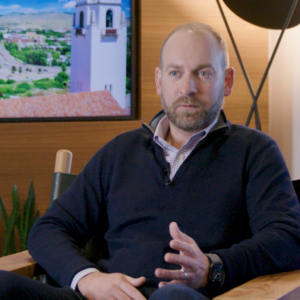By Whitney Warmack, Caprock Managing Director and Client Advisor
Among the thousands of small businesses nationwide worth over $100 million, an overwhelming majority are privately held. Notably, most of those are owned by Baby Boomers.1
This makes it all the more astonishing that only about a third of privately held business owners have a written succession plan.2 Why is that figure so low? After all, these are successful people with a lot on the line.
But when you think about what it takes to build a company of that size — an enormous amount of drive combined with a singular focus on work — it starts to make more sense.
Yet, a lack of an exit strategy can come back to bite them, whether it’s not getting fair market value, ending up with an exorbitant tax bill, or both. Whatever the case, millions may be left on the table.
Here’s what closely held business sellers need to keep in mind:
Evaluate the quality of your current team.
Not too long ago, we advised a company co-founder on the brink of a significant liquidity event. As he focused on getting the deal across the finish line, we constructed a team that included a CPA and an estate planning attorney, both of whom were well-versed in qualified small business stock (QSBS), which gets favorable treatment from the IRS. We also provided planning options ranging from outright gifting to irrevocable and grantor-retained annuity trusts.
In the end, we were able to take advantage of the benefits associated with these instruments to optimize his exit from a tax perspective. A greener advisor with a smaller, less specialized team may not have been able to win the same outcome.
This is a crucial point because, as a founder, you may be currently paper-rich and cash-poor. Yet the moment you sell your business, you’ll go from mass affluent to ultra-high net worth in an instant — meaning you could outgrow your current financial advisor when that happens.
Start early.
Even if you plan to hold onto your company for the foreseeable future, start the exit-planning process now. One reason is that you may not get to decide when you sell your business. Indeed, things like death, disability, and divorce are realities of life — and they can make that choice for you, so it’s best to be prepared for those possibilities.
The other issue is that many of the strategies discussed above need to be put in place before a sale occurs. For instance, transferring company shares well before a transaction happens, when their value is presumably much lower, provides you with an opening to give a gift with more upside.
Moreover, those shares often receive a lack of control/marketability discount. This could allow you to give more than you otherwise would while retaining larger lifetime gift and estate exemptions.
Network and learn
It’s common for founders to elicit advice from others when they start and build their companies. Doing the same when you begin the exit planning process is just as essential. Most entrepreneurs are happy to provide advice, share experiences, and even tell you about their regrets about executing a sale.
We can be a great resource in this area. We have a network of clients who were once just like you and, in some instances, would be able to advise on things germane to your industry.
Plan for what happens afterward
The planning process is not just about executing a sale effectively. An equally important part of the equation is to take the time to build a long-term strategy for your wealth.
Do you plan to make any large purchases? What about other professional goals? Many entrepreneurs sell one company only to start another one shortly after. Your holistic plan needs to incorporate these goals.
Also, be prepared to decide how much about the sale you’d like to share with friends and family. Some tend to see a large liquidity event as an open invitation to ask for a loan or elicit money for a “can’t-miss investment opportunity.” Your advisor can act as the gatekeeper to help determine which requests may be worth pursuing.
Finally, consider what you want the post-sale phase of your life to look like. Is there anything you have postponed or neglected over the years? Establishing personal goals can help you find added meaning after having so much of your time and identity wrapped up in being a founder/owner.
Selling any business is a massive undertaking. But naturally, the stakes are magnified when the valuations are lofty, and the bidding process is complicated. That places an emphasis on having an experienced advisor who can quarterback a large, interdisciplinary team of specialists to help you get everything you want and need.
About the Author
Whitney Warmack is the managing director and client advisor for Caprock’s Austin location. With over 16 years of experience in the financial industry, she brings a wealth of knowledge and expertise to her role. Warmack’s particular focus is on helping entrepreneurs navigate the complex world of wealth transfer and management. She cultivates strategies to foster sustainable long-term growth, tailored to the unique needs of each entrepreneur.
©2023 Caprock. All rights reserved. The Caprock Group, LLC (“Caprock”) is an SEC Registered Investment Advisor. This article is intended to provide general information about Caprock and is not a solicitation or offer to sell investment advisory services except in states where we are registered or where an exemption or exclusion from such registration exists. All content is for informational purposes only and may not constitute a complete description of available investment services. Registration with the SEC does not imply a certain level of skill or training.
- Kelly Main, “Small Business Statistics of 2024,” Forbes, November 14, 2023, https://www.forbes.com/advisor/business/small-business-statistics/. ↩︎
- PricewaterhouseCoopers, “PWC’s 2023 US Family Business Survey,” PwC, May 16, 2023, https://www.pwc.com/us/en/services/trust-solutions/private-company-services/library/family-business-survey.html. ↩︎



